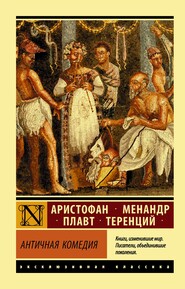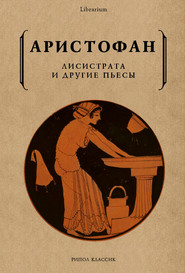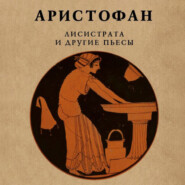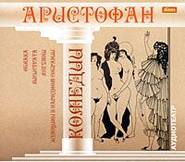По всем вопросам обращайтесь на: info@litportal.ru
(©) 2003-2024.
✖
The Eleven Comedies, Volume 1
Автор
Год написания книги
2018
Настройки чтения
Размер шрифта
Высота строк
Поля
183
Meaning, preparations for war.
184
Meaning, securing allies for the continuance of the war.
185
When Athens sent forth an army, the soldiers were usually ordered to assemble at some particular spot with provisions for three days.
186
These feasts were also called the Anthesteria or Lenaea; the Lenaeum was a temple to Bacchus, erected outside the city. They took place during the month Anthesterion (February).
187
A celebrated athlete from Croton and a victor at Olympia; he was equally good as a runner and at the 'five exercises' ([Greek: pentathlon.]).
188
He had been Archon at the time of the battle of Marathon.
189
A sacred formula, pronounced by the priest before offering the sacrifice ([Greek: kan_ephoria]).
190
The maiden who carried the basket filled with fruits at the Dionysia in honour of Bacchus.
191
The emblem of the fecundity of nature; it consisted of a representation, generally grotesquely exaggerated, of the male genital organs; the phallophori crowned with violets and ivy and their faces shaded with green foliage, sang improvised airs, called 'Phallics,' full of obscenity and suggestive 'double entendres.'
192
The most propitious moment for Love's gambols, observes the scholiast.
193
Married women did not join in the processions.
194
The god of generation, worshipped in the form of a phallus.
195
A remark, which fixes the date of the production of the 'Acharnians,' viz. the sixth year of the Peloponnesian War, 426 B.C.
196
Lamachus was an Athenian general, who figures later in this comedy.
197
At the rural Dionysia a pot of kitchen vegetables was borne in the procession along with other emblems.
198
Cleon the Demagogue was a currier originally by trade. He was the sworn foe and particular detestation of the Knights or aristocratic party generally.
199
That is, the baskets of charcoal.
200
The stage of the Greek theatre was much broader, and at the same time shallower, than in a modern playhouse.
201
A mountain in Attica, in the neighbourhood of Acharnae.
202
Orators in the pay of the enemy.
203
Satire on the Athenians' addiction to lawsuits.
204
'The Babylonians.' Cleon had denounced Aristophanes to the senate for having scoffed at Athens before strangers, many of whom were present at the performance. The play is now lost.
205
A tragic poet; we know next to nothing of him or his works.
206
Son of Aeolus, renowned in fable for his robberies, and for the tortures to which he was put by Pluto. He was cunning enough to break loose out of hell, but Hermes brought him back again.
207
This whole scene is directed at Euripides; Aristophanes ridicules the subtleties of his poetry and the trickeries of his staging, which, according to him, he only used to attract the less refined among his audience.











